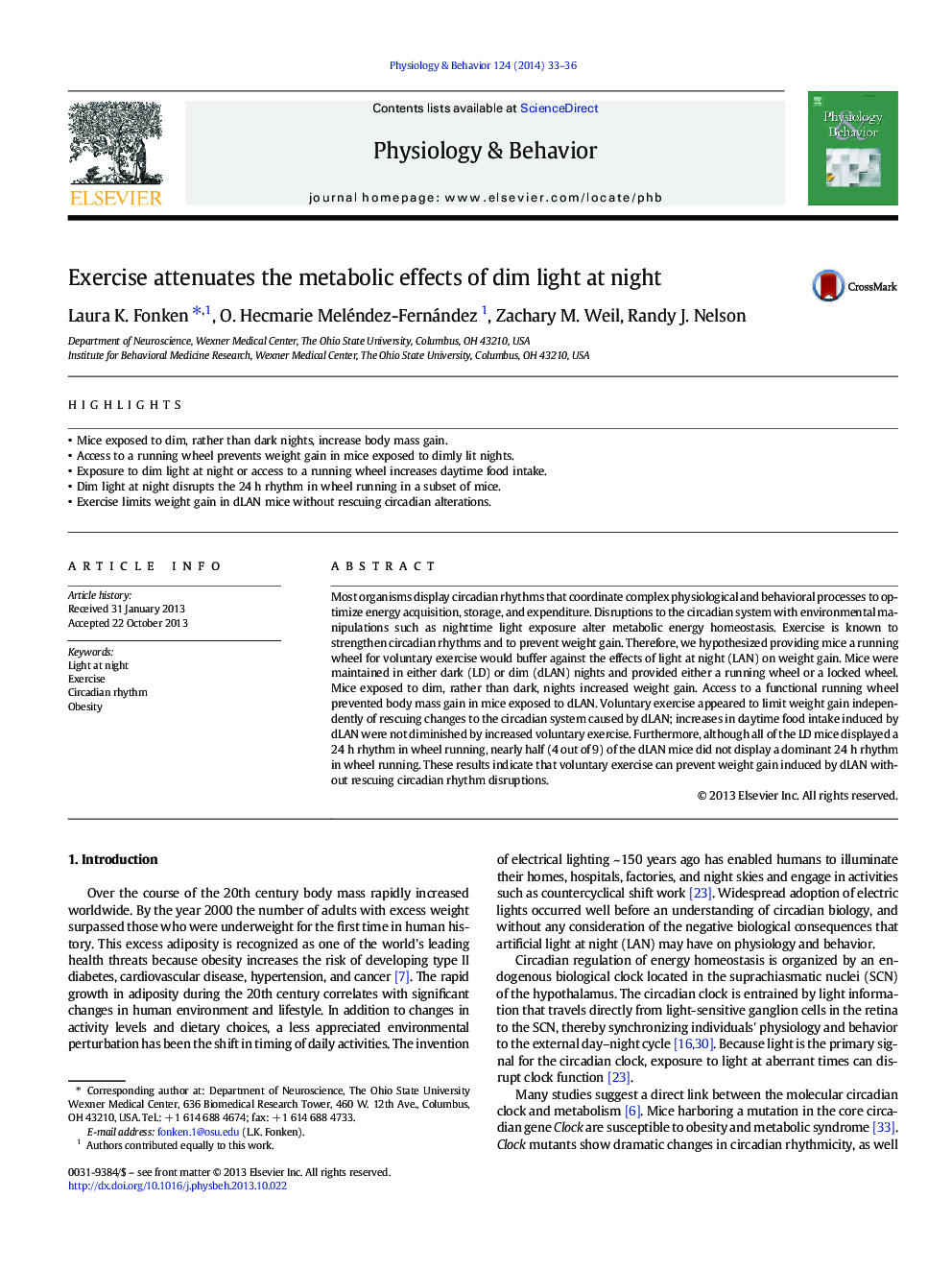| کد مقاله | کد نشریه | سال انتشار | مقاله انگلیسی | نسخه تمام متن |
|---|---|---|---|---|
| 5924512 | 1571193 | 2014 | 4 صفحه PDF | دانلود رایگان |
- Mice exposed to dim, rather than dark nights, increase body mass gain.
- Access to a running wheel prevents weight gain in mice exposed to dimly lit nights.
- Exposure to dim light at night or access to a running wheel increases daytime food intake.
- Dim light at night disrupts the 24Â h rhythm in wheel running in a subset of mice.
- Exercise limits weight gain in dLAN mice without rescuing circadian alterations.
Most organisms display circadian rhythms that coordinate complex physiological and behavioral processes to optimize energy acquisition, storage, and expenditure. Disruptions to the circadian system with environmental manipulations such as nighttime light exposure alter metabolic energy homeostasis. Exercise is known to strengthen circadian rhythms and to prevent weight gain. Therefore, we hypothesized providing mice a running wheel for voluntary exercise would buffer against the effects of light at night (LAN) on weight gain. Mice were maintained in either dark (LD) or dim (dLAN) nights and provided either a running wheel or a locked wheel. Mice exposed to dim, rather than dark, nights increased weight gain. Access to a functional running wheel prevented body mass gain in mice exposed to dLAN. Voluntary exercise appeared to limit weight gain independently of rescuing changes to the circadian system caused by dLAN; increases in daytime food intake induced by dLAN were not diminished by increased voluntary exercise. Furthermore, although all of the LD mice displayed a 24Â h rhythm in wheel running, nearly half (4 out of 9) of the dLAN mice did not display a dominant 24Â h rhythm in wheel running. These results indicate that voluntary exercise can prevent weight gain induced by dLAN without rescuing circadian rhythm disruptions.
Journal: Physiology & Behavior - Volume 124, 30 January 2014, Pages 33-36
